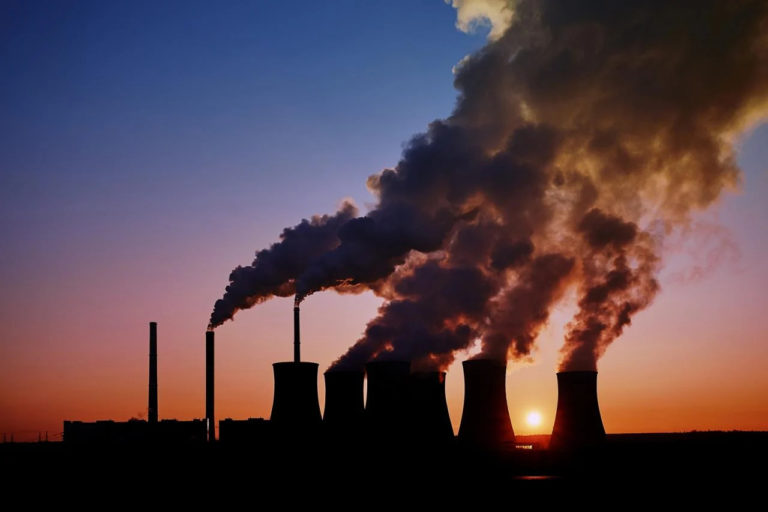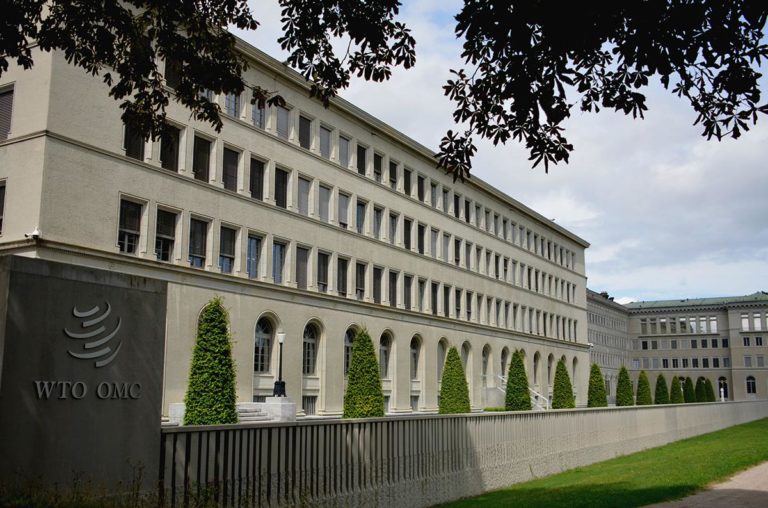Border carbon adjustment (BCA), long avoided and dismissed as a policy instrument sure to trigger trade disputes and poison the atmosphere of multilateral climate negotiations, is now the subject of earnest discussion among trade and climate policy-makers, civil society, affected industries, research institutes, and inter-governmental organizations. But we’re not yet having the right kind of discussion.
BCA (or CBAM for “carbon border adjustment mechanism” as it’s called in the EU) involves imposing charges or regulations at the border to mirror the costs that climate pricing policies impose on domestic firms. It can also involve rebating those costs at the point of export. There is no single agreed model for BCA; it is more like a decision tree that produces many options depending on design choices, such as what sectors and emissions to cover and how to estimate emissions embodied in traded goods.
The current flurry of interest is driven most acutely by the European Commission’s mandate to propose such an instrument by July 14 this year, with the intent to bring it into force by 2023.
However, more broadly, the interest is a consequence of increasing climate ambition; the EU announced its CBAM intentions as an integral part of the highly ambitious European Green Deal. In a similar vein, Canada announced federal consultations on BCA soon after announcing a legislated carbon price that will rise to USD 140 per tonne by 2030. The US has included BCA in the USTR’s 2021 Trade Policy Agenda, in parallel with the Biden Administration’s ramped-up climate ambition.

As more and more countries get serious about addressing climate change, BCAs will be more widely considered. The reasons are clear. Imposing high carbon prices on certain types of firms—in energy-intensive trade-exposed sectors like steel, cement, and aluminium—raises their costs. If trading partners don’t take similar measures, the result might be leakage: climate policies in one country leading to an increase in emissions elsewhere as the firms facing a carbon price lose market share to low-cost, high-carbon competitors.
BCA is a controversial tool for many reasons, primarily because it limits market access for high-carbon foreign producers, who may be located in developing or least developed countries. This raises the tricky question of how the costs of climate mitigation action should be allocated in a competitive global economy.
Related Articles: Trade Associations Speak on Carbon Pricing. Will Action Follow? | Upcoming World Health Assembly: An Opportunity to Help Vulnerable Countries
The UNFCCC principle of common but differentiated responsibility and respective capabilities (CBDR-RC) calls for developed countries, with their history of high emissions, to take the lead in climate change mitigation efforts, and it’s hard to see how they could do so if their efforts simply led to leakage. But the same principle also recognizes that not all states are equally capable of responding to climate change; requiring developing country producers to bear the cost of emissions related to products they export to developed markets sits awkwardly against this broader principle.
In addition to the issue of CBDR-RC, Brazil, China, India, and South Africa have voiced grave concerns about discriminatory unilateral BCA, foreshadowing future legal challenges at the World Trade Organization (WTO). The outcomes of legal disputes at the WTO would depend largely on the design of the BCA. However, whatever that outcome, it would not solve the core issues surrounding BCA.
Agreeing on best practices would help guide national efforts at BCA such that the results are more environmentally effective, less trade-disruptive, and more equitable.
The solution, therefore, must result from a dialogue amongst the governments adopting or affected by BCA—it cannot be delegated to WTO dispute resolution. An effective dialogue should focus on best practices or principles that could guide the design of BCA to ensure that it achieves its environmental objectives and avoids protectionism. This would be the right kind of discussion.
The objective would not be to agree on a one-size-fits-all BCA. BCA would vary significantly from country to country because it would be an adjunct to climate policies that vary significantly, from carbon taxes to emissions trading systems to output-based pricing. However, it is possible to imagine that countries identify broader principles that would inform any BCA, such as:
- No double protection: Any charge on foreign goods needs to account for protection granted to domestic producers (such as free carbon emission allowances).
- Credit for equivalence: BCA should grant credit for carbon prices levied in foreign jurisdictions.
- Challengeable assumptions: Foreign producers should be able to challenge any assumed carbon intensity using actual data.
- Revenue sharing: A portion of the revenue from a BCA should be used to help foreign producers lower their costs of compliance.
Beyond such principles, it would be useful to agree to best practices in areas like the measurement of embodied carbon in traded goods, calculating border charges, national exemptions, and sectoral scope of coverage.
The point would not be to define WTO legality or to pre-cook some legally binding agreement. It would simply be to guide national efforts at BCA such that the results are more environmentally effective, less trade-disruptive, and more equitable.

Where to hold such discussions? The WTO’s Committee on Trade and Environment, given its mandate, is an obvious candidate. This is already the place where countries with BCA plans are updating their fellow members. The committee, established in 1994, is open to the entire WTO membership, with some international organizations as observers.
Another (complementary) option could be the Trade and Environmental Sustainability Structured Discussions, a process launched by some WTO members late last year. The idea here would be to provide a more inclusive platform for WTO members that would also allow for exchange with climate actors and the private sector. This could ultimately feed into the work of the Committee on Trade and Environment.
Today’s gathering rush to a novel instrument with trade impacts echoes the situation in the 1960s, when many European countries were adopting a revolutionary new fiscal tool: the value-added tax. Unclear on its legal status, and sensing momentum toward global adoption, the contracting parties to the General Agreement on Tariffs and Trade (GATT), the WTO’s predecessor, convened a Working Party on Border Tax Adjustments.
In a two-year series of meetings, it identified areas of consensus and disagreement, and the resulting report has since served as a bedrock of shared understanding on trade-related aspects of destination-based taxation. Now, it’s time for a reprise.
— —
About the author: Nathalie Bernasconi-Osterwalder, LL.M, is Executive Director of IISD Europe and directs the Economic Law & Policy Programme of IISD. Aaron Cosbey is a development economist. His work cuts across a number of IISD program areas, with emphasis on climate change and energy, trade and investment law and policy, mining, subsidies and green industrial policy.
Editor’s Note: The opinions expressed here by Impakter.com columnists are their own, not those of Impakter.com.— In the Featured Photo: Construction worker pictured above traffic at sunset. Featured Photo Credit: Chandler Denise / Unsplash












